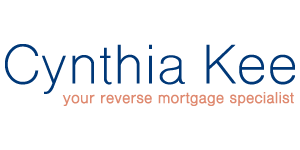The Power of Purpose
“Aging is an extraordinary process where you become the person you always should have been.” – David Bowie
Richard Leider, bestselling author of Repacking Your Bags and The Power of Purpose, is the chief curator of content for AARP’s Life Reimagined Institute. A visionary and thought leader, Richard reveals a one minute formula for finding your purpose.
1. You spend a lot of time helping other people find their purpose, but what gives you a sense of purpose?
Giving to others makes us feel happier. I get a happiness boost by making a small, unexpected difference in one person’s life every single day. I look for the “purpose moments.” For example, listening to someone with full presence. Listening is arguably the most important skill we possess. A day without at least one purpose moment is not a well-lived day for me.
2. Do people need to have a spiritual practice to have a sense of purpose or meaning to life?
Purpose is spiritual by nature because purpose is “compassion in action.” Most spiritual and religious traditions support this. One of the best antidotes to stress is to get out of your own thinking by helping someone else. You can’t worry about yourself when you’re busy caring for others.
3. What is one thing that the average person can do to live a more meaningful, happy life?
Answer the core purpose question, “Why?” Why do I get up in the morning? Envision the possible “purpose moments” in the day ahead. Purpose drives meaning. When you have a reason, an aim in life, you’re motivated to make things happen.
4. Is it ever too late to find your purpose in life?
Never. Mattering always matters, from cradle to grave. Purpose begins with believing that you have one. Purpose is a mindset, a choice to live a life that matters.
5. You have previously highlighted that regrets among older groups includes: 1) Not taking career risks, and 2) Not figuring out individual purpose until later in life. How can younger people avoid this regret and live with more intention every day?
Risk can be scary, but we’re more likely to regret the things we did not take a chance on than things that we did. Practice taking smart risks — that is, risks related to things that matter most to you. For example, your work. Do you have a job (pays the bills)? A career (progressing in your field)? A calling (fits your gifts, passions, and values)? The No. 1 regret of the elders that I have interviewed is in the work area. We spend 60 percent of our lives working! Maybe it’s time to heed your calling.
6. College students often don’t know their sense of purpose or what career path they are headed down. What advice would you give them?
Take the napkin test. I call it the “Got-A-Minute School of Coaching.” Take out a napkin and jot this formula for purpose: G + P + V = C. Are you using your most enjoyed gifts (G) on things that you feel passionate about (P), in an environment that fits your values (V)? If not, it’s time to go back to square one and figure this out.
7. Of all the tools and books you have developed and written, which one would you recommend our audience to read or use first and why?
I recommend reading The Power of Purpose-3rd Edition, which just came out. As I’ve matured, my understanding of purpose has matured. The new book has four new chapters including one entitled “Can Science Explain Purpose?” It also has a section on blue zones showing how healthy, purposeful choices become wise choices. Take the Purpose Chekcup. It will help you “live longer, better.”
8. In a previous interview with Blue Zones, you stated that purpose is something outside of yourself. What are a few examples of ways people can balance their own needs and desires to savor life, while also caring for others?
Put a post-it on your mirror with the default purpose: Grow & Give. Every morning for one week, look at and envision how to live it that day. Every evening look at it again and check in on how you did. You’ll be living with purpose! A universal well-lived day is one where we are both growing and giving. To grow, we need to be curious. Curiosity is among the best skills we can cultivate. Curiosity — about people, in particular — enriches our work and life. Curious people tend to live longer, better. Interact with others and draw them out. You’ll learn amazing things. In each interaction, ask yourself, “Was I interested or trying to be interesting?”
9. Not everyone wins the lottery with a good tribe (e.g. family, friends) or a nurturing place to live or work. What advice would you give people in these circumstances?
Cultivate a sounding board. When you are pushed by pain or pulled by possibility, these are your “go-to” people for listening and wisdom. Who is your committed listener? Who is your catalyst for inspiration? Who is your wise elder that opens the wider lens for you? Who is your wise younger that keeps you vital? And, don’t forget your pet! Pets often know our stories intimately!
Put Your Hard Earned Home Equity to Work for You. Contact Cynthia for a Complimentary Personal Assessment.
If you are 62 or older and you own a house you can take advantage of these benefits. Let’s get started!


